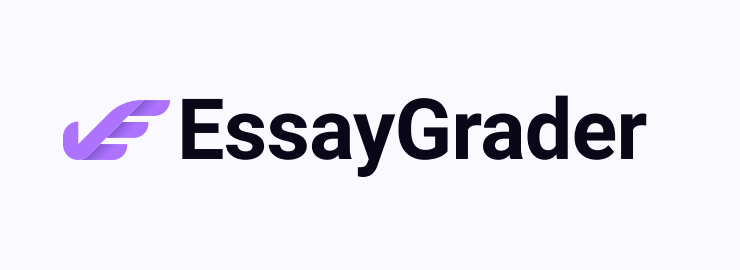AI in Edu: News, Tools, & Views (May 30)
Welcome to my weekly digest of AI in education news, tools, and views to help keep you informed. Let’s get started:
How students are really using AI tools: What schools need to know
eSchoolNews reports that students are increasingly turning to AI tools for diverse purposes, with the most popular use being mental health support—many seek advice on sensitive topics like self-harm and suicide through AI chatbots, drawn by the anonymity and immediacy they offer. Academically, students use AI to assist with homework and assignments, from generating ideas to solving problems, though this raises concerns about overreliance and academic integrity. Additionally, students harness AI to enhance their creativity in writing, art, and music, using it as a collaborative partner to expand their imaginative work. These trends underscore the importance of schools guiding students in the ethical and effective use of AI.
Google’s AI Education Strategy. An Interview With Google Execs
In a recent Forbes interview, Google Vice Presidents Shantanu Sinha and Bryan Lee discussed Google's AI education strategy. They emphasized the integration of AI tools like Gemini into educational settings to enhance learning experiences. Google’s plan is “to build AI features right into the tools teachers already use, like Google Classroom, so it feels natural.” The executives also highlighted the importance of ethical considerations, data privacy, and equitable access.
OpenAI's Education Leader Siya Raj Purohit on ChatGPT in Education
In the Class Disrupted podcast episode, co-hosts Michael Horn and Diane Tavenner engage with Siya Raj Purohit, OpenAI's Education GTM Leader, to discuss integrating generative AI tools like ChatGPT into educational settings. They explore how AI is becoming a native element in classrooms, assisting with personalized tutoring, administrative tasks, and campus-wide applications. The conversation emphasizes the potential of AI to alleviate routine tasks for educators, allowing them to focus more on mentorship and fostering critical thinking. However, they also highlight the importance of maintaining the human aspects of teaching and ensuring that AI serves as a tool to enhance, not replace, the educational experience.
Napkin AI: Introducing Elastic Designs
The popular and free Napkin AI introduces Elastic Designs, where visuals now scale automatically with your content and support more elements:
Coding in the Elementary Classroom: Free Tools, Strategies, and Resources
TCEA writes that incorporating coding into K–5 classrooms fosters critical thinking, creativity, and resilience. Free tools like Code.org, Scratch, and the upcoming Experience CS enable teachers without coding backgrounds to introduce computer science concepts effectively. Strategies such as unplugged activities, pair programming, and celebrating debugging experiences make coding accessible and engaging. Educators can enhance problem-solving skills and digital fluency by integrating coding across subjects, preparing students for a technology-driven future.
https://blog.tcea.org/coding-in-the-elementary-classroom-free-tools-strategies-and-resources/
In partnership with Essay Grader
Essay Grader is a straightforward, powerful tool that uses AI to take the load off your shoulders and will completely change the way you approach grading!
Every feature puts teachers first, with a focus on simplifying repetitive tasks like grading to improve productivity - all the while letting teachers be fully in control.
Streamline grading, provide detailed, actionable feedback to your students, and maintain complete control over your assessments - all in one intuitive interface.
Reduce grading time by 80%. Grade your entire class's essays in 2 minutes or less and deliver high-quality, specific feedback to your students.
Ensure fair essay grading by removing bias and aligning with state standards like Texas STAAR, Florida BEST and California CCSS.
Join Essay Grader and its ever-expanding network of 60,000+ educators, and you’ll connect with others who share your passion and commitment.
Exploring AI in Education Through the Lens of the Learning Sciences
At a recent symposium hosted by Northwestern's Center for Computer Science and Learning Sciences, Mitchel Resnick, Michael Horn, Eleanor O’Rourke, Dan Meyer and other experts examined the role of AI in education through the lens of the learning sciences. They emphasized that while AI offers opportunities for personalization and efficiency, it should support learner agency, creativity, and social interaction rather than replace them. Speakers advocated for AI tools that act as collaborative partners, enhancing human-centered learning experiences without diminishing the essential human elements of education.
https://blog.tcea.org/coding-in-the-elementary-classroom-free-tools-strategies-and-resources/
Generative AI is coming for our students, and now is the moment to shape it
Rebecca Winthrop of the Brookings Institute warns that generative AI is rapidly becoming embedded in students' lives, with tech companies aggressively marketing tools like ChatGPT and Gemini to young users. She argues that without proactive guidance, this could mirror the negative impacts of social media. Winthrop advocates for immediate action to establish ethical norms, promote AI literacy, and ensure that AI enhances genuine student engagement rather than merely increasing screen time. She emphasizes that now is the critical moment to shape AI's role in education responsibly.
And More…
Mathway - Algebra problem solver
mindgrasp - have your lectures or readings transformed into perfect study tools
With AI coaching, a math platform helps students tackle tough concepts - eSchoolNews
Claude’s new conversational voice mode is available on iOS and Android and can search Google Docs, Drive, Calendar
Thinking With Tools: David Winter’s Typology of Assistive Tool Use (TATU) - Nick Potkalisty
Why AI literacy is now a core competency in education - World Economic Forum
Trump Cracks Down Against Explicit AI Images. What It Means for Schools - Education Week
A New Headache for Honest Students: Proving They Didn’t Use A.I. - New York Times
Meta chief AI scientist Yann LeCun says current AI models lack 4 key human traits - MSN
AI Shows Higher Emotional IQ than Humans - Neuroscience News
Any suggestions to improve this newsletter? Please message me or leave a comment below!
Find my book AI Tools & Uses: A Practical Guide for Teachers at Amazon
*Learn more about Essay Grader





